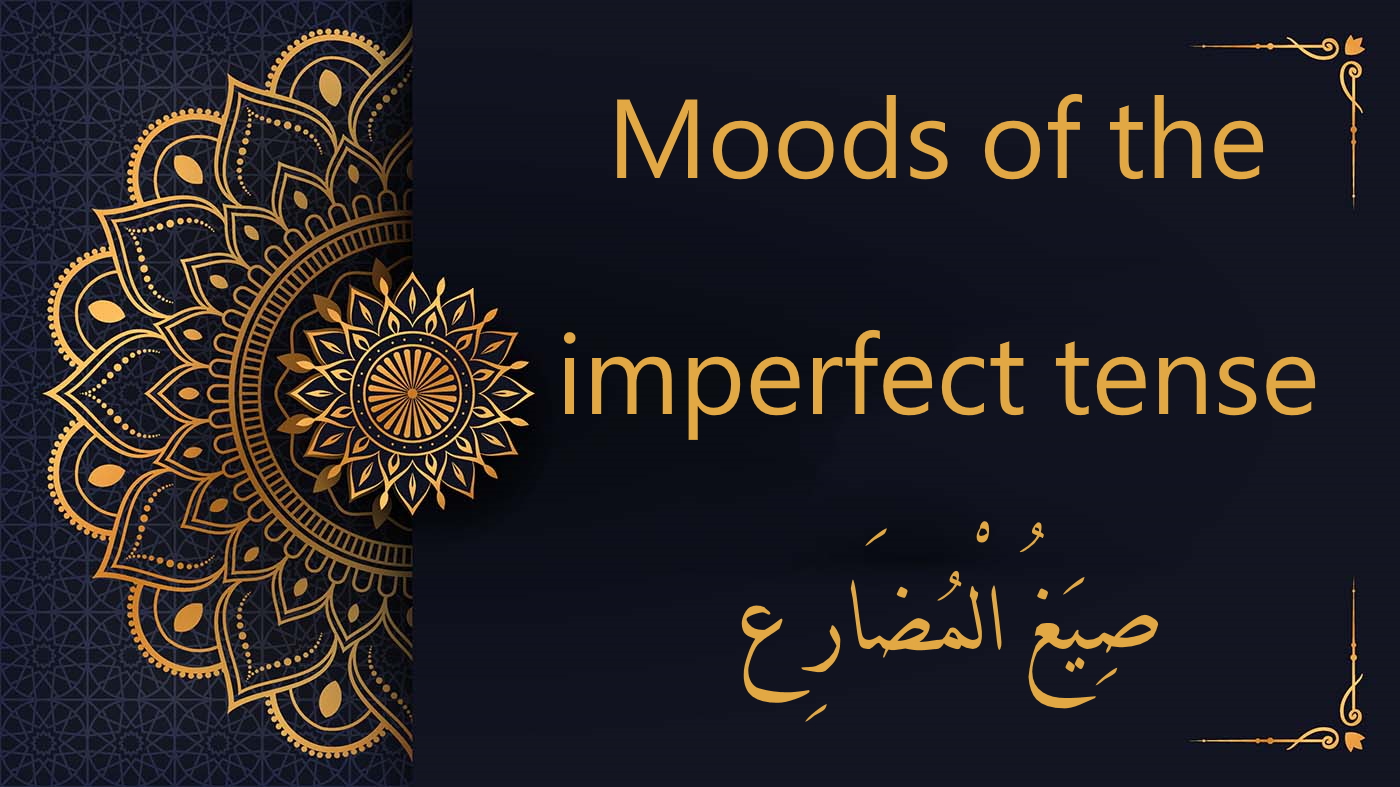Moods of the imperfect tense in Arabic – صِيَغُ الْمُضَارِع | Arabic Free Course

Moods of the imperfect tense in Arabic – صِيَغُ الْمُضَارِع Introduction In Arabic grammar, the imperfect tense, or المُضارِع (al-mudāri’), can take on different moods, including the subjunctive mood (المُضارِع المَنصوب – al-mudāri’ al-mansūb) and the jussive moods (المُضارِع المَجْزوم – al-mudāri’ al-majzūm). These moods bring variations to the regular imperfect tense verb conjugations and […]

